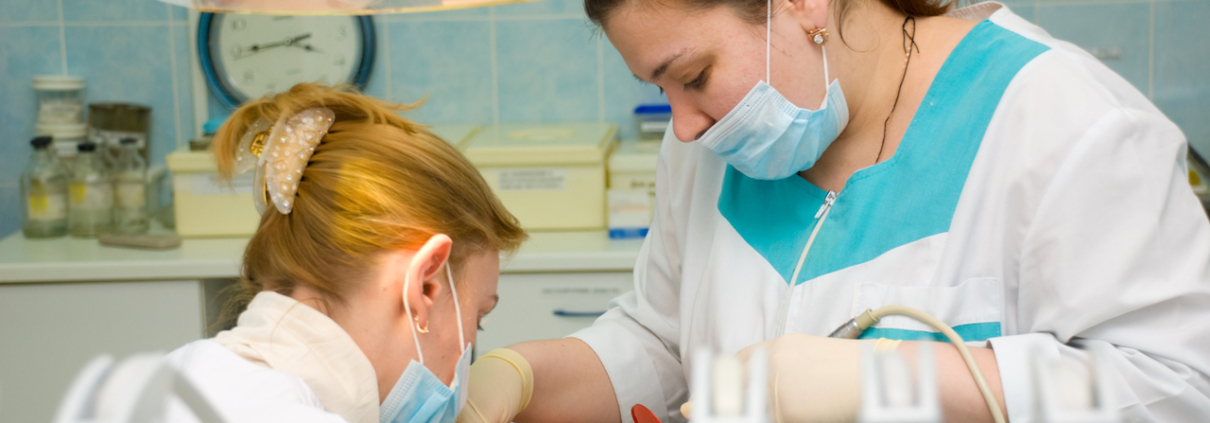How Many Dentists Have Left the NHS?
In the past few years, thousands of dentists have left the NHS.
How Many NHS Dentists Are There?
According to one report, at the end of 2020 there were 23,733 dentists providing NHS care in England. By the end of January 2022, this figure had fallen to 21,544.
As each dentist manages a caseload of around 2,000 patients , this mass desertion has lead to the creation of “dental deserts”, leaving approximately four million people without access to dental care on the NHS.
It looks like the problem is only going to get worse, too. According to the British Dental Association (BDA), 75% of UK dentists are likely to reduce, or further reduce, their NHS commitment over the next 12 months. 45% claim they’re going to go fully private, and 47% suggest they’re either going to change career or seek early retirement.
Why Are So Many Dentists Leaving the NHS?
Shawn Charlwood, chair of the BDA’s General Dental Practice Committee, attributes the mass exodus to dentists feeling “overstretched and underfunded” during and after the recent Covid-19 pandemic.
According to BDA figures, 87% of UK dentists have experienced symptoms of stress, burnout and other mental health problems over the last 12 months. And it seems that patients, frustrated by the lack of available NHS dentist appointments, may be taking out their anger on staff. 86% of UK dentist report that colleagues in their practice have received physical or verbal abuse from patients.
What’s the Problem with the NHS Dental Contract?
The BDA argues that the current NHS dental contract, which has been in place since 2006, “puts government contracts ahead of patient need”.
For years, this contract set untenable incentives. For example, dentists would receive the same renumeration for doing one filling as they would for doing 10. It’s for such reasons that the Health Select Committee described the contract as “unfit for purpose”.
NHS Dental Contract Changes in 2022/23
In July 2022, the government announced a number of changes to the NHS dental contract. These included:
- A new minimum payment for hitting targets.
- A higher reward for treating three or more teeth.
- Dental therapists can now accept patients for certain NHS treatments, freeing up dentists’ time for more urgent and complex procedures.
- New payment rates for more complex treatments.
- Updates to the NHS website and directory of services to help patients find dentists in their local area.
The BDA argued that these new contractual arrangements “do not even begin to address the system’s fundamental flaws… this is another attempt to conjure up more capacity without adding any new investment.”
The Collapse of Dentistry on the NHS?
In September 2022, NHS England released on update on the reforms their dental contract changes for 2022/2023.
The BDA, who previously claimed that “dentists are simply not seeing a future in the NHS”, seems cautiously optimistic that these changes may make a difference. However, they’ve also described these changes as “modest and marginal”, claiming that dentistry needs an immediate funding injection of £880m to stabilise the situation in the short-term.
Eddie Crouch, chairman of the BDA, called for “real commitment; root-and-branch reform and adequate funding.”
And unless the government makes this “real commitment” soon, it seems that dentists will continue to leave the NHS, and those “dental deserts” will continue to grow.
A Message to Dental Patients
Despite the problems many are having seeing a dentist on the NHS, Chief Dental Officer for England Sara Hurley said that anyone experiencing tooth issues should contact their local dentist as usual.
She said: “Infection prevention and control measures to protect staff and patients were introduced during the pandemic. These limited the number of procedures NHS dentists could carry out.”
“However, these restrictions have now been lifted enabling practices to operate at full capacity for the first time in two years, so anyone with concerns about their dental health should contact their local dentist as they usually would or seek advice from NHS 111.”
A Message to Dental Surgeries
We know that the last few years have been difficult and that you’ve probably had to deal with higher levels of staff absences due to infection. We’d love you to see how, by installing our Blueair air purifiers in your surgery, you can tacklethis issue and reduce illness. Why not get in touch with us to find out how we can support you?



